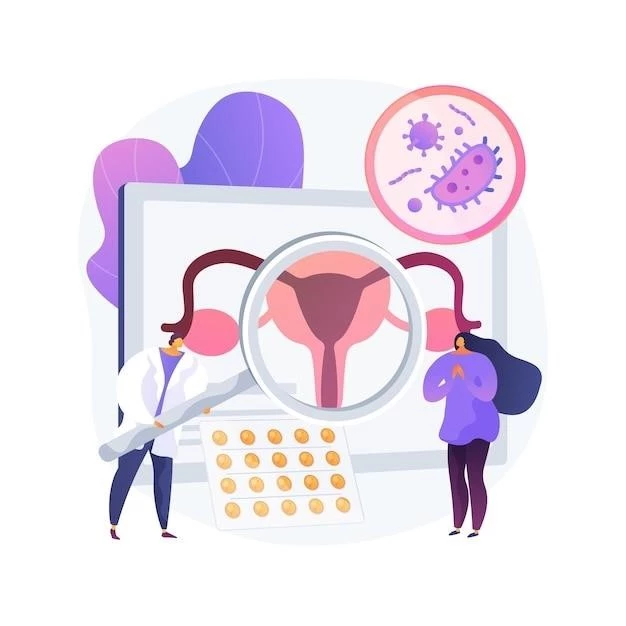Introduction
Vaginal yeast infection‚ also known as candidal vulvovaginitis and vaginal thrush‚ is excessive growth of yeast in the vagina that results in irritation. The most common symptom is vaginal itching‚ which may be severe.
Overview of Yeast Infection
Vaginal yeast infection‚ known as candidal vulvovaginitis‚ is an overgrowth of yeast in the vagina causing irritation. Common symptoms include vaginal itching‚ burning during urination‚ and a white‚ odorless discharge. This fungal infection can affect various parts of the body and is typically treated with antifungal medications. Preventive measures include probiotics and good hygiene practices.

Causes and Symptoms
A yeast infection is caused by an overgrowth of candida‚ a specific type of yeast. Symptoms include itching or soreness of the vagina‚ pain during sexual intercourse‚ pain or burning when urinating‚ and changes in vaginal discharge. Learn more about the causes and symptoms of this common issue.
Causes of Yeast Infection
A yeast infection is mainly caused by an overgrowth of Candida‚ a type of yeast naturally found in the body. Factors that can disrupt the balance leading to this overgrowth include antibiotic use‚ uncontrolled diabetes‚ a weakened immune system‚ hormonal changes‚ and poor hygiene practices. Additionally‚ things like tight clothing‚ douching‚ or high levels of stress can also contribute to the development of a yeast infection.
Symptoms of Yeast Infection
Yeast infections can manifest as vaginal itching‚ soreness‚ pain during sexual intercourse or urination‚ changes in vaginal discharge‚ redness‚ and skin cracking. It can cause discomfort and irritation in various parts of the body. If symptoms persist or worsen‚ it’s advisable to seek medical attention for proper diagnosis and treatment.

Diagnosis and Treatment
Diagnosing a yeast infection typically involves physical examination and testing of a sample. Treatment often includes over-the-counter antifungal creams or oral medications‚ with prescription options available for more severe cases. Preventive measures and lifestyle changes are also crucial in managing and preventing recurrent infections.
Diagnosing Yeast Infection
Diagnosing a yeast infection involves a physical examination and testing of a sample. Doctors examine affected areas‚ view skin samples under a microscope‚ or perform a culture test. The diagnosis helps determine the appropriate treatment‚ which may involve over-the-counter antifungal creams‚ oral medications‚ or prescription options for more severe cases.
Treatment Options for Yeast Infection
Yeast infections are commonly treated with over-the-counter antifungal creams‚ ointments‚ or suppositories containing clotrimazole or miconazole. Oral antifungal medications like fluconazole may also be prescribed. In cases of recurrent infections‚ long-term treatments or weekly fluconazole pills may be recommended. Probiotic supplements and lifestyle changes can also aid in prevention and management.
Prevention and Complications
Preventing yeast infections involves maintaining good hygiene‚ avoiding irritants like douching‚ wearing breathable cotton underwear‚ and practicing safe sex. Complications of untreated infections can include skin sores‚ infertility‚ or systemic bloodstream infection in severe cases. Learn more about prevention measures and potential complications associated with yeast infections.
Preventive Measures for Yeast Infection
To prevent yeast infections‚ it is essential to maintain good hygiene practices‚ avoid irritants such as douching‚ wear breathable cotton underwear‚ and practice safe sex. Probiotic supplements like Lactobacillus acidophilus and yogurt may help in preventing yeast overgrowth. Other preventive measures include avoiding tight clothing‚ reducing stress levels‚ and being mindful of hormonal changes that can contribute to yeast infections;
Potential Complications of Yeast Infection
Untreated yeast infections can lead to complications such as skin sores‚ infertility‚ or systemic bloodstream infections‚ especially in severe cases. Some individuals may experience recurrent infections‚ indicating the need for long-term antifungal treatments or weekly fluconazole pills. It is crucial to seek medical attention for proper management and prevention of complications associated with yeast infections.
